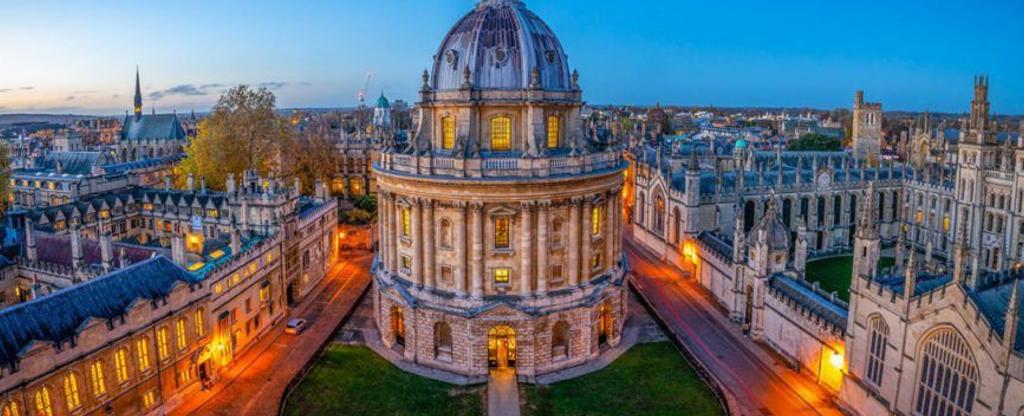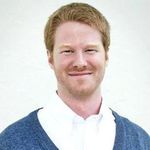Newman Reading group at Franciscan University of Steubenville: An Interview with Dr. Theodore Harwood

In celebration of St. John Henry Newman's canonization in October of 2019, Franciscan University of Steubenville had various events in honor of Newman during the 2019–2020 academic year. One of those events was a faculty group, led by classics professor Dr. Theodore Harwood, which had been meeting weekly since September 2019 to read and discuss Newman's The Idea of a University. We reached out to Dr. Harwood to ask him to tell us more about the reading group and to share his thoughts on why Newman's vision of a university remains important for those in Catholic education. Below are our questions and his generous responses.
Whose idea was it to begin a faculty reading group devoted to The Idea of a University? What was the motivation for starting this group?
Dr. John Crosby (no doubt well known to your readers) sent out an email to the faculty last summer suggesting that we figure out events to celebrate Newman's canonization. He gave a number of suggestions, among which was to hold a reading group on the Idea. I had wanted to do this before, so I volunteered to organize it. Dr. Crosby and our Director of Teaching Excellence, Kaybeth Calabria, also organized a number of talks on Newman, where one faculty member would interview another—they covered Newman's philosophy, his thoughts on Science, his poetry, and his essay on Personal Influence, as well as The Idea of a University itself. In addition, there were three public readings of Newman's sermons by faculty in our chapel.
Besides celebrating Newman's canonization, we thought it was a great occasion to encourage more study of Newman. It's a real blessing for us, as a Catholic university, to have a saint who thought and wrote deeply about what a university is for, how theology fits into it, and how we as Catholic professors—even if we're not theologians—should think about our work in relation to Christianity.
How many departments are represented at the group?
A good number. I'm from Classics. There are two from Theology, three from English, and one from Biology/Engineering who regularly come. One from Philosophy and one from Education who couldn't come last semester have been able to this semester. Others from Philosophy, Education, Physics, and even Student Life have come more occasionally.
Why is The Idea of a University relevant to those in Catholic higher education today?
I could say a lot of things here, so I'll just offer the point that I think is most important. Newman articulates a vision of the University that depends on a certain idea of knowledge and reality: that ultimately it's all one thing. But given the sort of intellect we have, we can't see that unity all together. We have to split reality into parts and use many methods in order to piece together a vision of the whole. Newman argues that a university must encourage all legitimate studies and modes of inquiry because if we exclude some discipline (his biggest example is theology), the remaining disciplines will try to fill in the gap, but this will lead them to error because they'll be going beyond their proper sphere. When we read about that, it's easy to think of so-called scientism, which excludes any non-scientific ways of knowing, especially in the philosophical and theological realm.
But the problem exists as much in the individual mind as it does in the university: each of us scholars, whatever our discipline, needs to understand the proper sphere and mode of ALL the disciplines, or we will fall into the very natural tendency to think that our own discipline can explain more than it really does. Newman says that it's important for the faculty of a university to converse and debate with each other frequently so that they are challenged in their positions and can work out the issues where there is some overlap or connection between different disciplines. Some universities have made efforts in this direction with interdisciplinary studies, but Newman's vision seems to be more radical—that such studies aren't just a nice addition, but a necessary part of what a university is.
Have there been any aspects of Newman's vision of the university that the group has found difficult to accept in theory, or to apply in practice?
Many of us objected to his initial definition of the university in the preface as a "place of teaching universal knowledge," which focuses on the diffusion and not the advancement of knowledge. Franciscan is a teaching-oriented university, but many felt that good teaching could not really be separated from research, "the advancement of knowledge," and that we couldn't really be teachers of truth unless we were first seekers of it. As we went on, however, it became clear that Newman was not excluding research or the pursuit of truth, and so it may just be a difference of emphasis. It seemed to us that Newman still expected his scholars to deepen their knowledge and that what he wanted to mark off for distinct research centers was what we might call the productive component of academia: professional talks, articles, books, etc. However, some still objected the good, which both faculty and students aim at is the truth, and so the university must be essentially constituted around that pursuit primarily, with teaching being secondary and a result of it. I think that's more like the vision of JPII's Ex Corde Ecclesiae. It may be, however, that Newman doesn't disagree with that; he just has a more particular situation of the university in view (i.e., in his own time, as opposed to a research center).
What role does the liberal arts play in Newman's vision of education?
It might be easier to use a Newman sort of tactic (as in his lecture on English Catholic Literature) and ask what role they don't play. They don't form you for a specific job or discipline—you need additional training to become a doctor or a philosophy professor—but they do make you better at nearly any job that requires understanding or speech. Whatever particular training you need the liberal arts are the thing to study first because they develop the most fundamental abilities of the mind, so that you can disassemble and understand new concepts more quickly, easily make and understand distinctions, draw generalizations, identify what is significant, and explain yourself exactly. The last, I think, is especially important: you should be able to recognize the value of specialized language (for whatever thing you study and work in) and use it appropriately, but you should also be able to explain concepts, problems, and things to people outside your area in more generally intelligible language.
What does Newman's personal, particular example of sanctity have to teach those who work in Catholic education?
Maybe this is really the opposite of what you're asking, but I noticed that, in the latter "Discourses" particularly, Newman shows an appreciation for the natural abilities of man, which I think we should take seriously. He doesn't neglect the supernatural or downplay it, obviously, but he thinks that we need to value natural goods appropriately. The human intellect, unaided by special grace or revelation, is still capable of quite a lot, because it was given certain abilities by God, which we are meant to develop. There are certain deficiencies too, of course, and even problems that arise from a developed intellect—Newman especially points out that intelligence typically encourages pride, the tendency to fall back on ourselves. But he also points out that a liberal education encourages certain virtues that help us resist certain temptations and excesses—not as sins, but as affronts to good taste and manners. So, the natural has its own logic that can help or harm. Newman simply believes that we should recognize it and harness it for supernatural ends.
Daniel Waldow
Dan Waldow has a Master of Arts in Theology from Ave Maria University and is currently pursuing a PhD in Systematic Theology from Duquesne University. His writing has been published in the Newman Studies Journal, The International Journal of Systematic Theology, The Heythrop Journal, New Blackfriars, and Crisis Magazine.
QUICK LINKS

